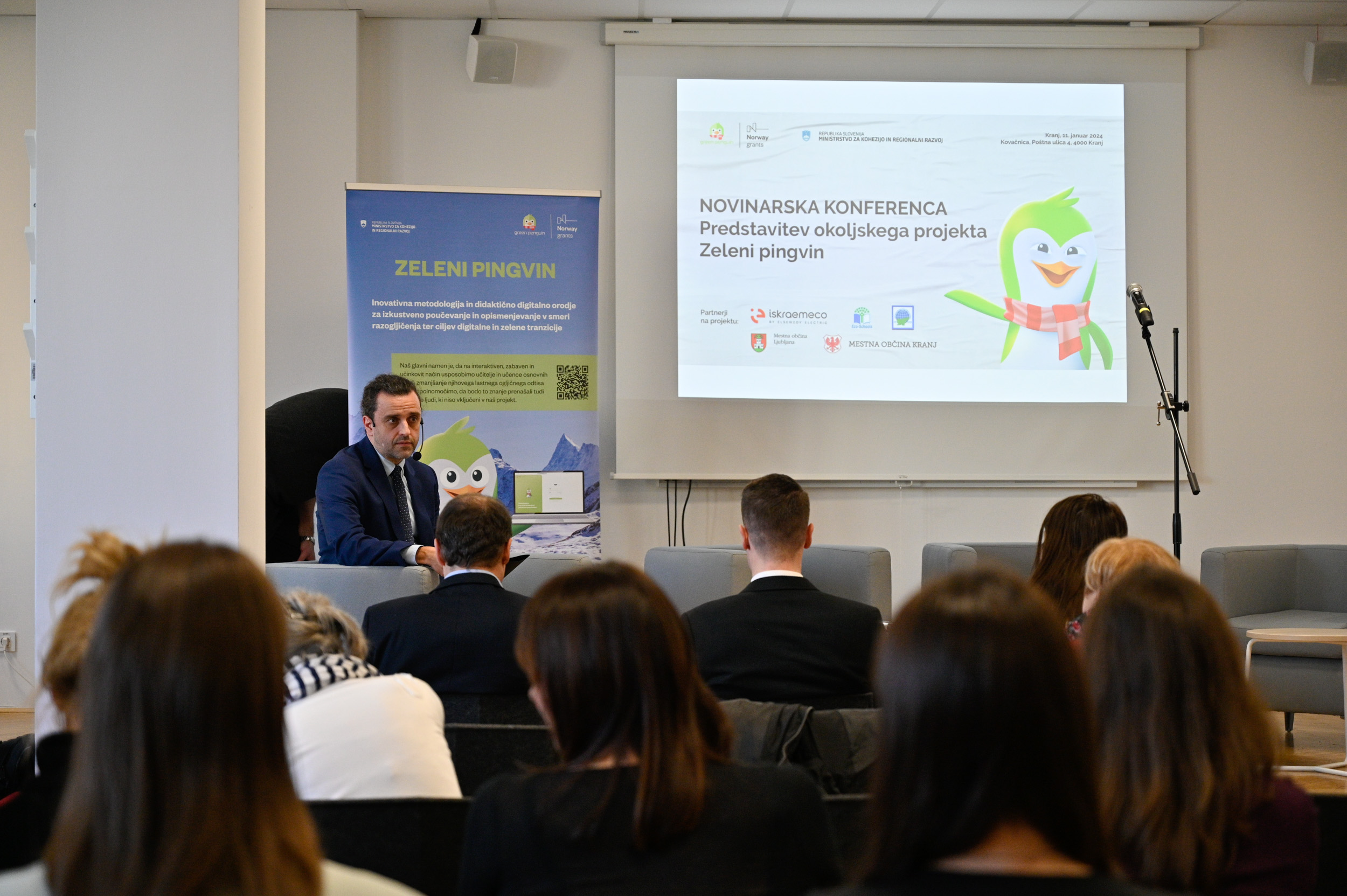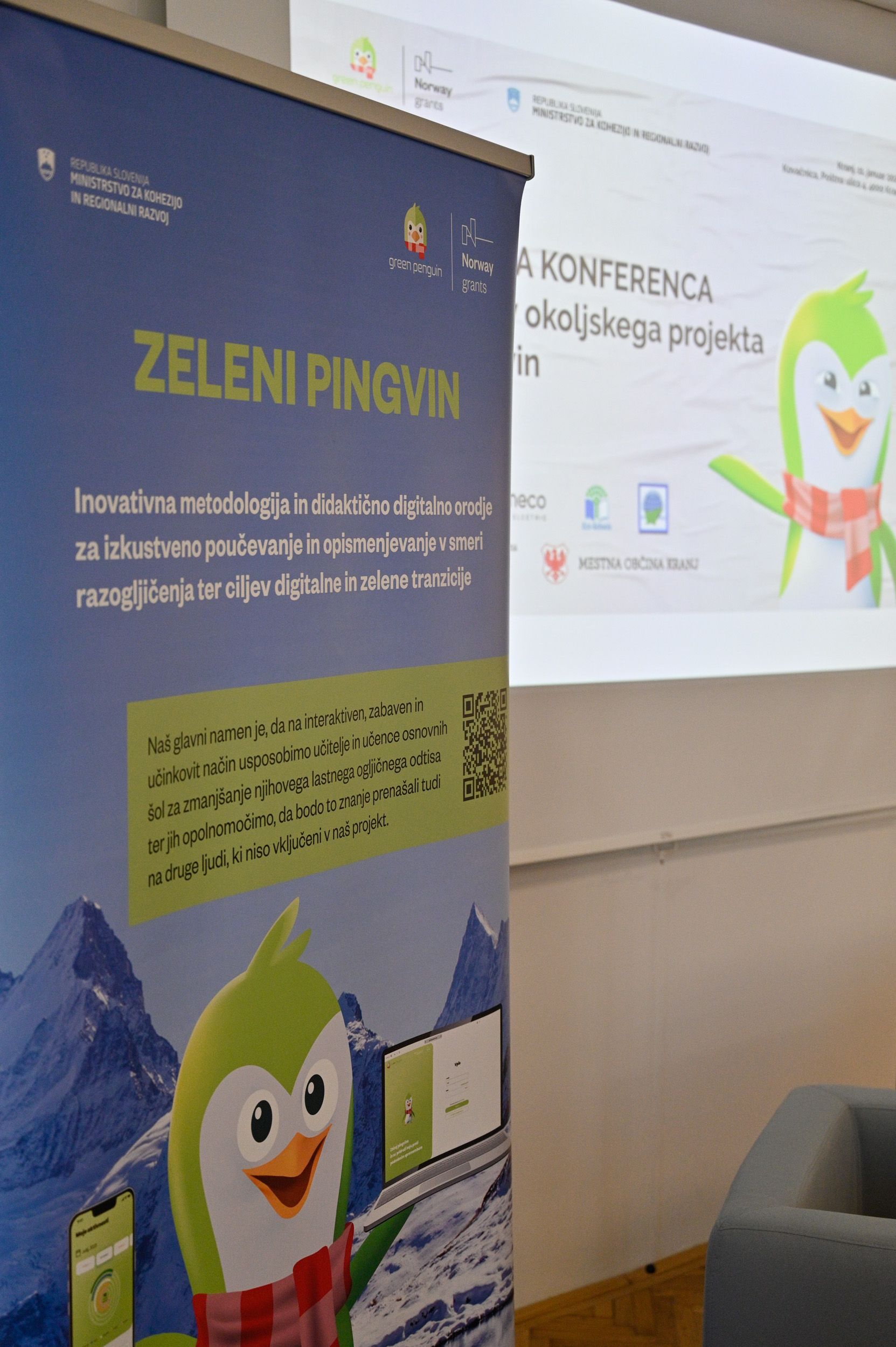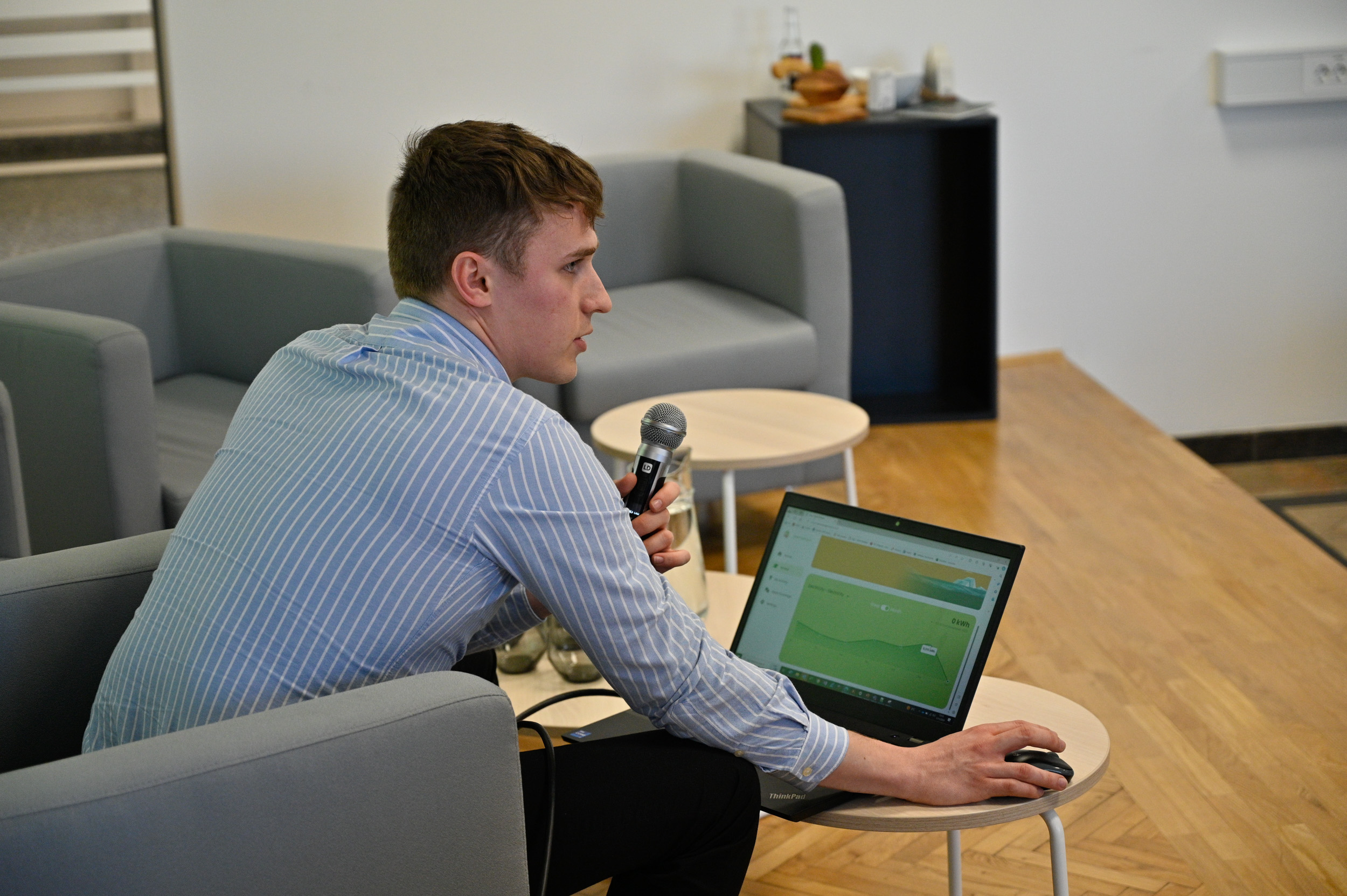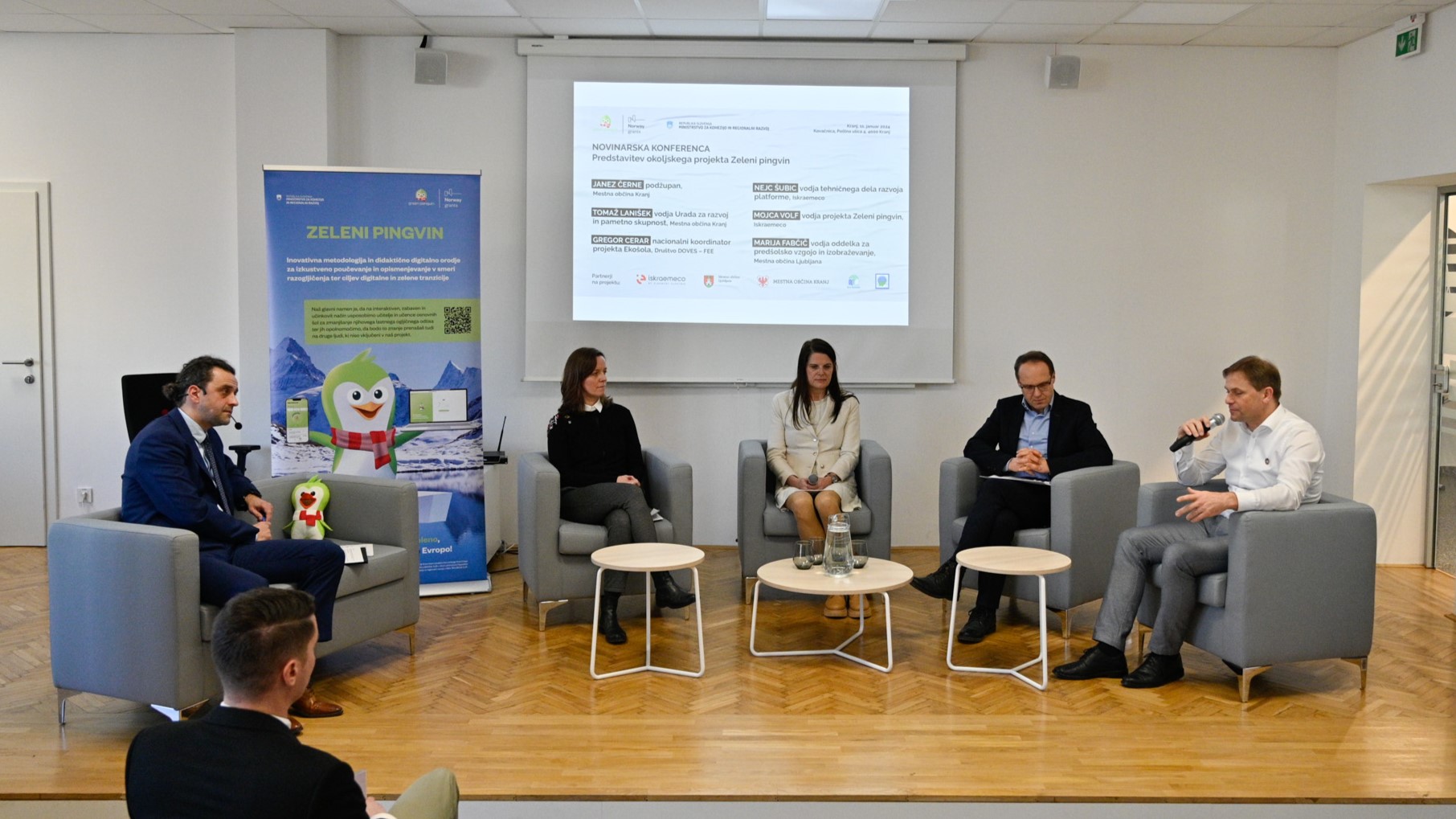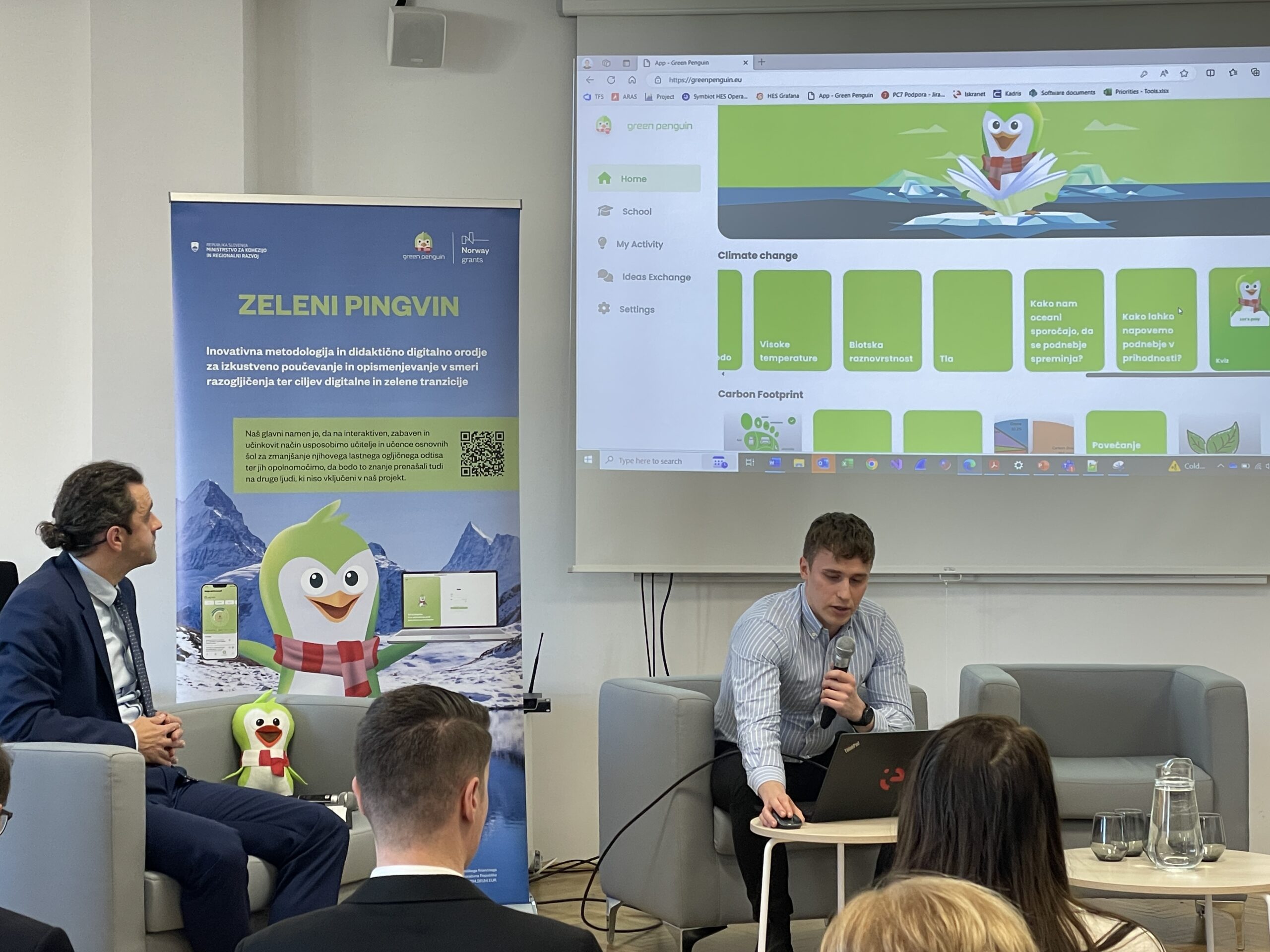An innovative way to raise awareness of sustainable lifestyle with Green Penguin
The path to a sustainable lifestyle and environmental awareness is difficult but undoubtedly important. In Kovačnica, Kranj, the project partners recently presented the Green Penguin initiative, an innovative approach to encouraging children to adopt a sustainable lifestyle.
Participants learned more about an initiative that uses creativity and interaction to encourage young people to adopt a sustainable lifestyle. The project partners aim to reduce carbon emissions, protect the environment, and reduce costs for individuals and communities by using an interactive digital platform that provides educational content on climate change, carbon footprint, and resource consumption.
At the press conference, Project Manager Mojca Volf and Head of Technical Development Nejc Šubic from Iskraemeco highlighted how the platform enables children to monitor and record their activities by linking data on energy consumption and the resources of the school and other buildings. The project is working with seven pilot elementary schools where children have already had the opportunity to test the platform and app. Gregor Cerar, National Coordinator of the EcoSchool project, DOVES – FEE Association, and Marija Fabčič, Head of the Department for Pre-school Education of the Municipality of Ljubljana, are already seeing positive reactions and impacts that show that the project is achieving its goals, as the children now have a better understanding of the environmental challenges and can look for solutions more effectively. The application is very popular with children and has received positive reviews, which indicates that the project is achieving its goals.
Tomaž Lanišek, Head of the Office for Development and Smart Communities at the City of Krany, placed the Green Penguin project in the broader context of the municipality’s activities and plans in the transition to a carbon-neutral and smart city. “Digital solutions are helping us to achieve our goals; with a digital platform, managing environmental and other data, we will raise awareness, communicate and facilitate the use of urban transport.”
The project marks the beginning of environmental education for young people with the explicit aim of building a community that is engaged and helps to improve quality of life and encourage behavioral change. In this way, the Green Penguin project not only lays the foundations for a sustainable future but also raises awareness.
Today, the Green Penguin project is being implemented by a consortium of organizations, namely: Iskraemeco, d.d., the City of Kranj, the City of Ljubljana, the Association DOVES-FEE Slovenia and FEE Norway who are implementing the international Eco-Schools programme. The project is co-financed by the Norwegian Financial Mechanism and Ministry of Cohesion and Regional Development. The Norwegian Financial Mechanism stands for Norway’s contribution to a green, competitive and inclusive Europe.
